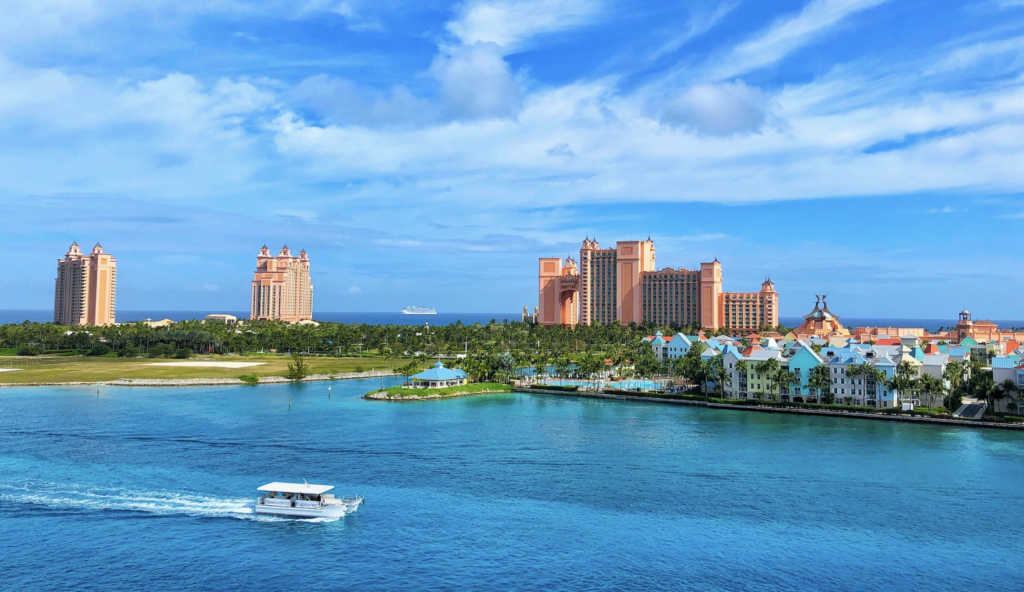
Bahamas’s main businesses
The Bahamas, a picturesque archipelago in the Caribbean, is renowned for its stunning beaches, vibrant culture, and warm climate. While tourism is the country’s main driver of economic activity, other sectors also play vital roles in the nation’s economy. Here’s an overview of the Bahamas’ main businesses:
### 1. **Tourism**
Tourism is the lifeblood of the Bahamian economy, contributing nearly 50% to the nation’s GDP. Millions of tourists, primarily from the United States, Canada, and Europe, visit the Bahamas each year to experience its luxurious resorts, crystal-clear waters, and tropical weather. Nassau, Paradise Island, and the Exumas are among the most popular tourist destinations. The country also benefits from its proximity to major cruise ship routes, with ports like Nassau and Freeport welcoming numerous cruise liners.
The tourism industry encompasses hotels, resorts, restaurants, and various recreational activities such as scuba diving, snorkeling, and boating. The Bahamas offers a range of accommodation options, from high-end luxury resorts to more affordable vacation rentals. Major international brands like Atlantis Paradise Island and Baha Mar have established significant presences, further boosting the nation’s profile as a leading vacation destination.
### 2. **Financial Services**
The Bahamas is also a major offshore financial center, with financial services contributing around 15% to the nation’s GDP. The country has built a reputation for being a hub for offshore banking, insurance, and trust services. The Bahamas Financial Services Board (BFSB) has worked to maintain its status as a premier destination for private banking and asset management, with more than 250 licensed banks and trust companies operating in the country.
Strict confidentiality laws, combined with a favorable tax regime, have made the Bahamas an attractive location for wealthy individuals and corporations seeking to manage assets, minimize taxes, or conduct business in a stable political environment. While international scrutiny and changes in global regulations (such as the implementation of anti-money laundering laws) have affected the sector, the Bahamas continues to be a key player in the financial services industry.
### 3. **Agriculture and Fisheries**
While not as dominant as tourism or finance, agriculture and fisheries are crucial for local livelihoods and the domestic economy. The Bahamas imports the majority of its food, but certain crops, such as citrus fruits, tomatoes, pineapples, and bananas, are grown domestically. Farming operations are generally small-scale and face challenges, such as limited arable land and hurricanes.
The fishing industry is another important sector, particularly for products like spiny lobster (crawfish), conch, and snapper, which are highly sought after in international markets. Spiny lobster is the most significant export, with the U.S. being the largest buyer. The Bahamian government has taken steps to regulate fishing to ensure the sustainability of marine resources.
### 4. **Real Estate and Construction**
Real estate, especially luxury and vacation properties, is another booming sector in the Bahamas. The country attracts international buyers who seek second homes or investment properties in its scenic locales. High-net-worth individuals are drawn to the Bahamas for its tax advantages, high-quality lifestyle, and proximity to North America. Foreign investment in real estate has spurred development in construction, particularly in luxury resorts, condos, and private islands.
Construction companies in the Bahamas are thriving due to the constant demand for infrastructure improvements and the development of new residential and commercial properties, especially in popular tourist areas.
### 5. **Manufacturing and Industrial Activities**
Though a smaller contributor to the economy, manufacturing exists in the form of light industries, particularly in Grand Bahama. Freeport, the second-largest city, is home to the Freeport Industrial Zone, where businesses benefit from tax exemptions and duty-free operations. Products manufactured include pharmaceuticals, refined petroleum, and beverages. Freeport also serves as a center for transshipment and warehousing due to its strategic location.
### Conclusion
While tourism reigns supreme in the Bahamas, financial services, agriculture, fisheries, real estate, and light manufacturing contribute to the diversity of its economy. As the country looks to future growth, challenges such as climate change, dependence on imports, and the need for economic diversification will continue to shape its business landscape. However, the Bahamas’ natural beauty, strategic location, and favorable business environment ensure its continued status as a thriving Caribbean economy.



Leave a Reply